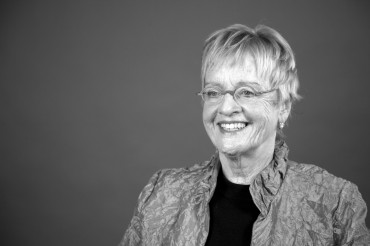Favorite things to do in Austin: I enjoy hiking around Austin and surrounding areas
Bio
- Carol Thompson is a business connector, economic development strategist and frequent public speaker.
- Carol has played a significant role in the bridging of Austin's traditional and new economies. She was chairman of the board of the Greater Austin Chamber of Commerce in the 1990s, the very beginnings of tremendous business outreach and growth for the city which has continued through today. During her term, 25 established companies like Apple chose to expand to Austin; 30 local companies expanded, too. In that same time frame, Thompson was a 2-term chairman of the San Antonio Branch of the Dallas Federal Reserve Board.
- Carol has been recognized as 'one of Austin's 5 most powerful women' by the Austin Business Journal and as one of Austin's 'top 25 tech players to know' by the Austin American-Statesman. She has been a past delegate to the White House Conference on Small Business and the recipient of numerous awards ranging from the Office Depot International Women in Technology award to the Liz Carpenter Women in Communications Lifetime Achievement award.
- Carol Thompson has served on more than 30 professional,civic and charitable boards. Presently, Carol serves on the University of Texas College of Engineering Advisory Board, the Austin Convention and Visitors Bureau Board, and the Young Women's Alliance Advisory Board; she is also on the Host Committee for COTA/Formula One.
- TRANSCRIPT
- WHAT ARE YOUR STRENGTHS?
- When I work with a prospect, new client, what I bring to the table is 30 years of experience in Austin, everything from business, to government, to university, to non-profit. I've worked here for almost 30 years, in Austin, and I'm at the top of my game. I know a lot of people. I know what they do, and so I chose to work on world-changing clients, and to choose world-changing clients.
- I have a client who is involved with cognitive computing, working with a software-thinking brain that thinks at a PhD level. That's pretty exciting.
- HOW DID YOU WIND UP IN AUSTIN?
- I lived in southern California, and I was in a community that I thought was an enlightened community. I found out only 20% of the kids went on to 4-year schools, for college, and I thought, "This is not the place for me." I researched cities in the country. I did not know one person; we moved to Austin Texas.
- Austin has lived up to everything. It's a good community to give back, has good air in Austin. It has caring people in Austin, high levels of education, which is very important, and Austin is open to new ideas.
- DISCUSS YOUR WORK AT THE FED...
- I was on the Federal Reserve board in the '90s. My role from Austin was to tell the Austin story, and a lot of it came from the chamber and at that time, in the early '90s, it was hard for them to believe that we're an evolving technology community, because the Federal Reserve Board in Dallas, and the San Antonio branch, they were used to hearing stories about what? Oil, gas, real estate, and the stories in Austin that kept getting bigger and bigger.
- And so finally, they decided to have a luncheon in Austin, with 350 people at lunch. And the people in Austin wanted to hear about the Fed, but the Fed was very amazed to hear the story of Austin, Texas, and it's really, as we know, gotten stronger every year.
- We went to California, on our first economic development and recruiting trip. In 1988, people had to pull out a map to say, "Who's Austin? Where is Austin?" And now, as we know, you just have to say Austin, you don't even have to say Texas.
- We went on the trip to California, to tell them what we had available here, in case they chose to expand, and expand they did. We visited 100 companies on that first trip, then the very next year, 90 companies visited Austin Texas. Out of that 90, 25 chose to expand to Austin.
- Stanford Institute Research did a study on Austin and what it was going to take to make us into a technology community, and we followed the recipe to make that happen, and here we are. Some people in 2000 think we just fell out of the sky and all this technology happened. But there really was a strong backbone to the community with the likes of IBM and TI.
- DESCRIBE YOUR RELATIONSHIP WITH UT...
- I've been involved in the University of Texas since 1988, because it was a recruiting tool, and still is, when we go out of state because people are asking, "What kind of educated workforce do you have?"
- Since I have been involved with the university, it has changed in that the university is more active in the community, meaning more players than just the executive team at the top of the universities and community; you have access to the deans, you have access to the faculty, and that's changed.
- And I think it's been very good for both sides: the community knowing more about the faculty, one-on-one, and the faculty understanding that the community can help them in their endeavors.
- WHAT WILL AUSTIN BE LIKE IN TEN YEARS?
- Austin, ten years from today, I think is going to be even more exciting than it is today, and it's pretty exciting today. And I think our own University of Texas will expand internationally, which will be good for Austin.
- Some people think we have enough people in Austin, but I think Austin has a lot to offer the country and the world, and I intend to stay here forever.
